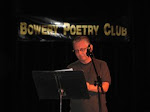[
The first reposting of this CD, for which the following text was written, was on April 8, 2012.] This is a reposting of one of the first posts I made to this blog, two years ago,
here, and the last of the "housecleaning" reposts from that first month or two, before I was uploading whole CDs in a single zip (or now, rar) file.
A lot has happened in the two years since I started this blog on April 5, 2010. Three people I've either known or who were people who were close to people I know, have since passed away--all of them living in, and/or connected to people who are living in, Portland, Oregon, where I found this CD in a Cambodian grocery store on Foster Road. In late August, my soon-to-be ex-wife and I separated, and I moved from Brooklyn, where I'd spent most of the 15 years I've lived in New York, to Astoria, Queens, where I am now. (If you look at this blog's history, you'll see that there's an abrupt end to posting in August and that I didn't pick it back up until April of 2011.)
Any listener familiar with Cambodian rock of the 60s and 70s will notice, listening to the CD I've posted tonight, that these are not exactly original recordings. They retain the original vocals--from Sinn Sisamouth, Pan Ron, Ros Sereysothea and others--as well as some of the original instrumentation. But other instrumentation has been added, as though to contemporize the songs, to lift them out of the past and insert them, however awkwardly, or even painfully, into the present. Though purists might bemoan the addition of drum machine and god-knows-what-else (Casio?), for me, there's something beautiful about the gesture, as blasphemous as it might strike many others.
It means one thing to archive, to select from and to present artifacts from one's (personal or cultural) past; it means something different altogether to contemporize these same artifacts, to attempt to situate them within one's present. It isn't, in this case, an act of rewriting history; it's something more complicated. More painful, perhaps, but closer to how memory, the past, does live within, or haunt, the here and now.
I started this blog two years ago as a way to share some of the music that meant the most to me with a handful of friends who I thought would derive some pleasure from it. But there was always another agenda behind taking on and continuing this project, which was to foreground the extent to which the United States has always been haunted by a fluctuating but nonetheless steady stream of immigration. An immigration not just of people and their pasts, but of cultures and their pasts (and presents). These recordings are not just glimpses into other cultures, they're clues into our own constantly evolving culture, as well as our own recent past. (Consider: How did a Cambodian grocery store wind up in Portland, Oregon? Is it, in other words, a direct consequence of the U.S.-Soviet proxy war in Vietnam, or more specifically of the U.S. bombing of PAVN targets in Cambodia and Laos for more than a decade in the 60s and 70s?)
Watching the 2012 GOP primaries and the pandering to what one can only assume to be a white middle-aged heterosexual Western-religion-identified male American target, the insanity of any genuinely held belief that America is, in fact, that hardly needs me or anyone else to point out just how absurdly out of sync with reality that it is. But being who we are and knowing who we are are two entirely different things.
I was at a wedding reception last month where a second- or third-generation Asian-American referred to other (first-, second- and third-generation) Asian-Americans as "Asians" and white Americans as "Americans; it was hardly the first time I've heard that particular distinction being made.
"die Vergangenheit ist klar vorbei" ("the past is clearly over"), wrote Ernst Herbeck, an Austrian schizophrenic patient whose poetry I've been translating off and on over the last 10 years or so. (Ugly Duckling Presse, here in New York, will be publishing a selection of some 30 of my Herbeck translations this summer--I'll post an announcement when it's available.) I love that line, not because it's obviously the case ... but because it, so clearly, isn't.




















.JPG)
.JPG)






























.jpg)






















































.jpg)


































